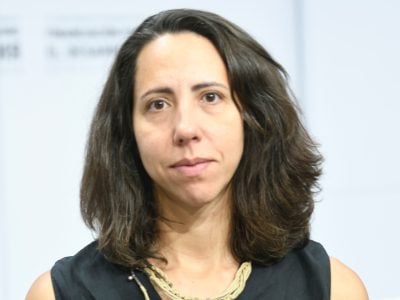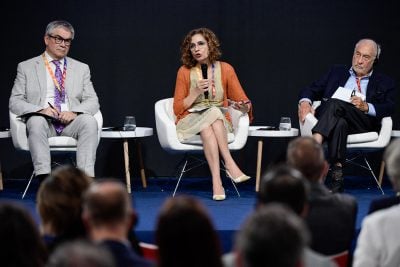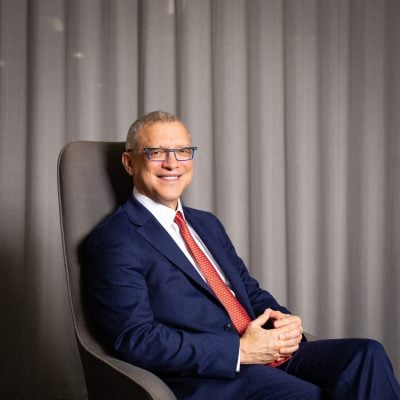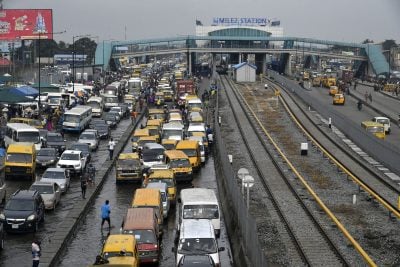When Leila Fourie was appointed Group CEO of the Johannesburg Stock Exchange (JSE) in October 2019, “in many ways, it was like going back home,” she says.
Fourie held executive positions at the JSE under its two previous CEOs, Russell Loubser and Nicky Newton-King, part of a 30-year career spanning the breadth of South African and international capital markets.
The first few months at the helm of the JSE were “smooth sailing”, Fourie recounts. “But in the past six weeks, I probably learned more than I have in the last 30 years of my career, including during crises like Black Monday in 1987, the 1988 Asian Crisis or the 2008 Global Financial Crisis.”
Speaking from her own home during South Africa’s strict Covid-19 lockdown, Fourie argues that the pandemic, more than any previous crisis, requires a collective and coordinated answer from business leaders and politicians, given its massive effects on the real economy. “It is an exhilarating and deeply privileged position to be in, but equally pretty demanding and quite stressful at times.”
From anaemic growth to plummeting GDP
Of course, the JSE under Fourie’s leadership was facing a challenging environment even before the pandemic hit. South Africa’s GDP growth has been anaemic in recent years, and the pandemic has kicked a recovery even further down the road. The IMF predicts that the economy will contract by 5.8% this year. And while the ongoing crisis directly led to South Africa losing its last investment-grade sovereign credit rating from a major rating agency, there was an unmistakable trend in downgrades going back years. Covid-19 has only worsened the outlook.
“Growth expectations have plummeted,” says Fourie, listing the challenges facing South Africa’s economy and the JSE. “Most commentators are estimating declines from 6 to 10%. Some even go as high as 17% in 2020. The speed at which the economy can bounce back is still uncertain and will determine the outcome.”
Many South African companies were already cash-flow-constrained or heavily indebted going into the crisis, Fourie says. She expects more companies to go into business rescue processes, with unemployment to rise and earnings to decline accordingly. “From a market perspective, this doesn’t bode well for liquidity and activity on the exchange.”
Not all doom and gloom
But, she argues, not all is doom and gloom: “We do have a couple of opportunities. Particularly, we are very fortunate to have a bedrock of asset and fund managers.” Local South African investors are limited by exchange control regulations, forcing their investments to remain mostly onshore. “What we have seen in the past is that they typically have taken up the slack, when international investors are leaving us.”
Another opportunity Fourie hopes that investors will be attracted to is the JSE’s bond market. South Africa’s sovereign bonds were forced out of the World Government Bond Index following the Moody’s downgrade at the end of March, “but instead of the expected massive outflow, we saw a small positive inflow from foreigners. This supports the theory that the downgrade was already priced in. The South African market may still be attractive on its yield on a relative basis despite the junk status and the significant reduction in interest rates over the past month.”
With most of the world heading into a low or negative-growth environment, Fourie hopes that global investors might reevaluate their perception of junk status altogether. One focus of a new outreach strategy is Southeast Asia, where the JSE hopes to generate interest in investing in South African markets with a data-driven approach, providing potential investors with the requirements for sound market analysis.
Another promising focus could be the SME space, for which the JSE could facilitate critical investment to generate high growth. “We are looking to stimulate growth through a private placement platform,” she explains. “This is not the usual listings environment, but a lighter, more privately based platform, that at the same time offers entrepreneurs a more standardised approach to raising capital.”
Infrastructure could be another sector that would benefit from this effort to make it easier for investors to find high growth investments, and the JSE is in discussions with stakeholders to co-create a solution.
Promoting sustainable finance
One aspect of Fourie’s work that predates the pandemic is a commitment to sustainable finance. JSE launched a green bond segment a year ago and, in February, announced that it would expand the segment to encompass social bond principles and create a new sustainability bond segment. This proved to be a timely initiative, as the exchange has seen an uptick of interest in social bonds during the coronavirus crisis.
“Both the World Bank and the African Development Bank have issued social bonds in response to Covid-19. Social bonds are really important to provide debt managers with a more diverse investor base as government deficits start to rise quite sharply.”
The JSE’s social bond framework is currently undergoing the regulators’ gazetting process, and Fourie hopes to launch it as soon as this is finished. “This not only aligns with the current context of Covid-19 but also with the critical market need in our country, which is investing in social upliftment, especially given our very high GINI-coefficient.”
Greater diversity required
Social inequality is also reflected in the ownership of the JSE itself and the companies listed on the exchange. “My feeling is that we still have a way to go in terms of diversifying ownership,” Fourie says.
Taking the JSE as an example, she says that while the board and executive leadership comfortably exceed government targets for black representation, the fact that foreign investors own 40% of the company poses a challenge to increasing black ownership.
“What we have put in place, not only for the JSE, is that all listed companies are required to report on their voluntary targets for diversifying ownership. But there is no doubt that we need to do more to transform our markets.”
While the pandemic is currently dominating Fourie’s daily agenda, she says it is crucial not to lose sight of the future. “I know that it is hard to imagine a time after the pandemic. But our focus goes beyond the crisis. Once this is behind us, we will be getting on a plane with our key ministers and the CEOs of the major listed companies to put forward South Africa as an investment destination to the rest of the world. We are all in this together. The exchange is very much a proxy for the macroeconomy, but there is a lot that we can do to grow our markets.”
Listen to the full interview on our podcast Running Africa’s largest stock exchange during a pandemic and a ratings downgrade with Dr Leila Fourie
Listen to our podcast interview with Lukanyo Mnyanda, editor of Business Day, Africa’s leading financial daily, based in Johannesburg.
Want to continue reading? Subscribe today.
You've read all your free articles for this month! Subscribe now to enjoy full access to our content.
Digital Monthly
£8.00 / month
Receive full unlimited access to our articles, opinions, podcasts and more.
Digital Yearly
£70.00 / year
Our best value offer - save £26 and gain access to all of our digital content for an entire year!
 Sign in with Google
Sign in with Google 


